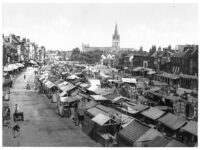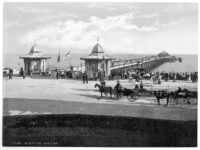In 1772, in the First Partition of Poland, the town was acquired by the Kingdom of Prussia as Bromberg and incorporated into the Netze District in the newly established province of West Prussia. At the time, the town was seriously depressed and semi-derelict. Under Frederick the Great the town revived, notably with the construction of a canal from Bromberg to Nakel (Nakło) which connected the north-flowing Vistula River via the Brda to the west-flowing Noteć, which in turn flowed to the Oder via the Warta. During the Kościuszko Uprising, in 1794 the city was briefly recaptured by Poles, commanded by General Jan Henryk Dąbrowski, and the local Polish administration was co-organized by Józef Wybicki.
Theatre Square in 1911
In 1807, after the defeat of Prussia by Napoleon and the signing of the Treaty of Tilsit, Bydgoszcz became part of the short-lived Polish Duchy of Warsaw. With Napoleon’s defeat at the Battle of Nations in 1815, the town was re-annexed by Prussia as part of the Grand Duchy of Posen (Poznań), becoming the capital of the Bromberg Region. In 1871 the Province of Posen, along with the rest of the Kingdom of Prussia, became part of the newly formed German Empire. During German rule, the oldest church of the city (church of Saint Giles), the remains of the castle, and the Carmelite church and monastery were demolished.

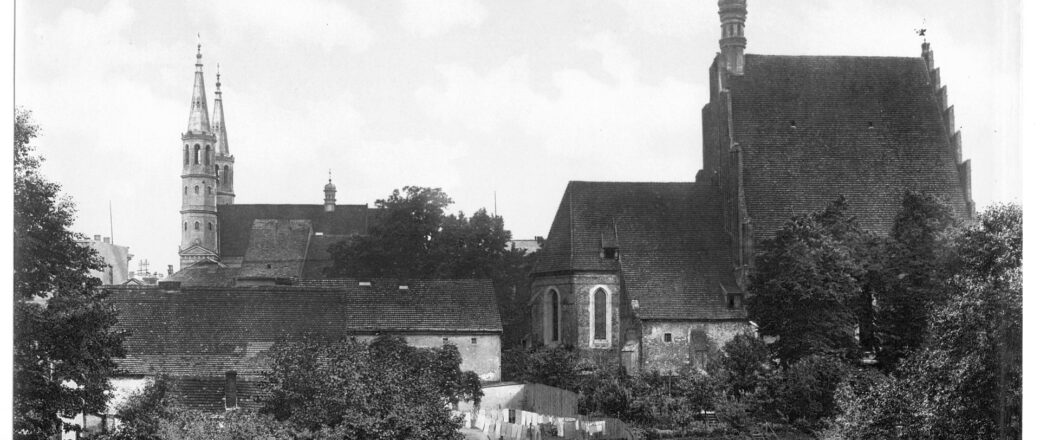

![Christ Church, Bromberg, Silesia [i.e., Posen] Germany (i.e., Bydgoszcz, Poland)](https://monovisions.com/wp-content/uploads/2023/06/bromberg-bydgoszcz-germany-1890s-vintage-historic-bw-photos-001-scaled.jpg)
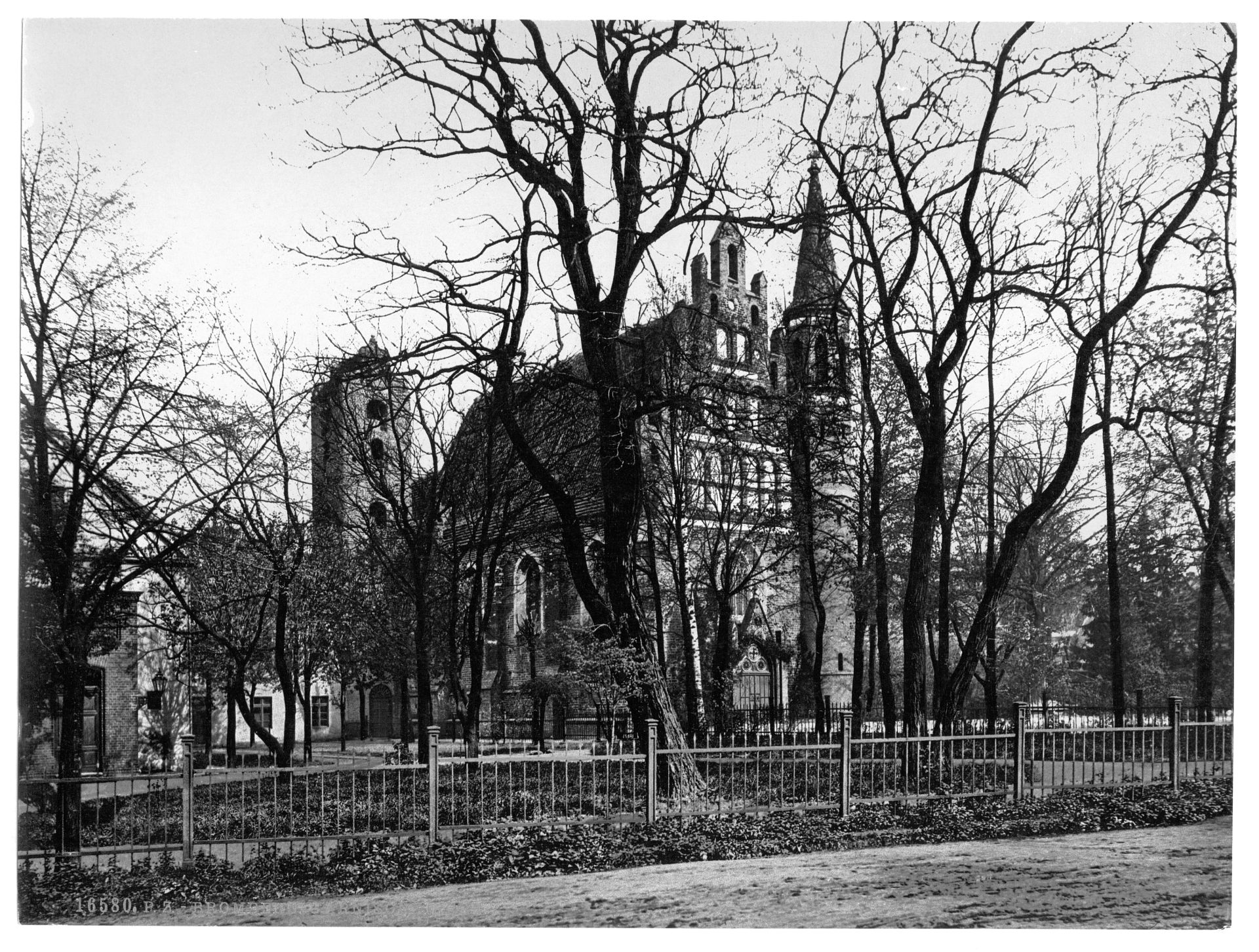
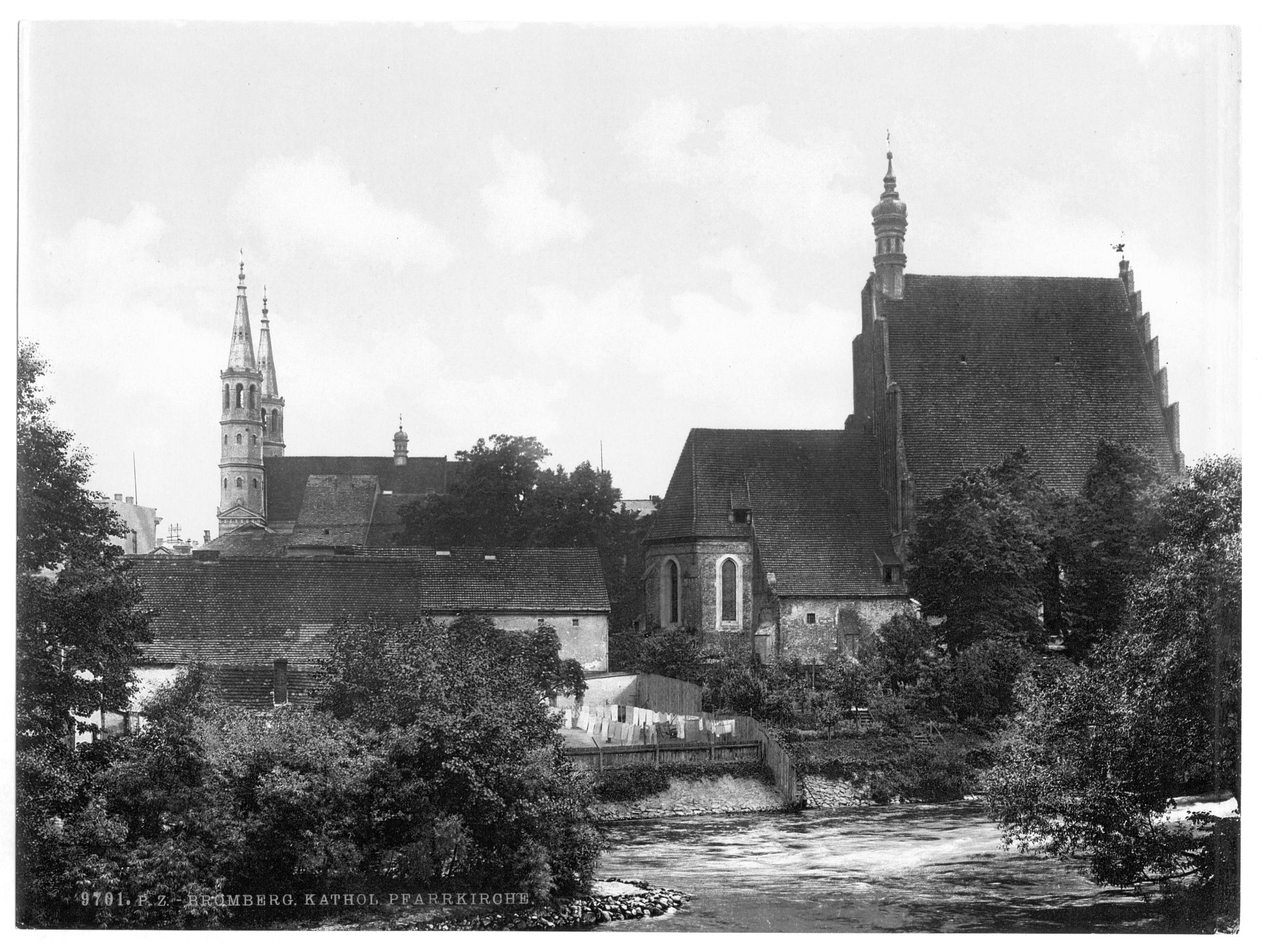
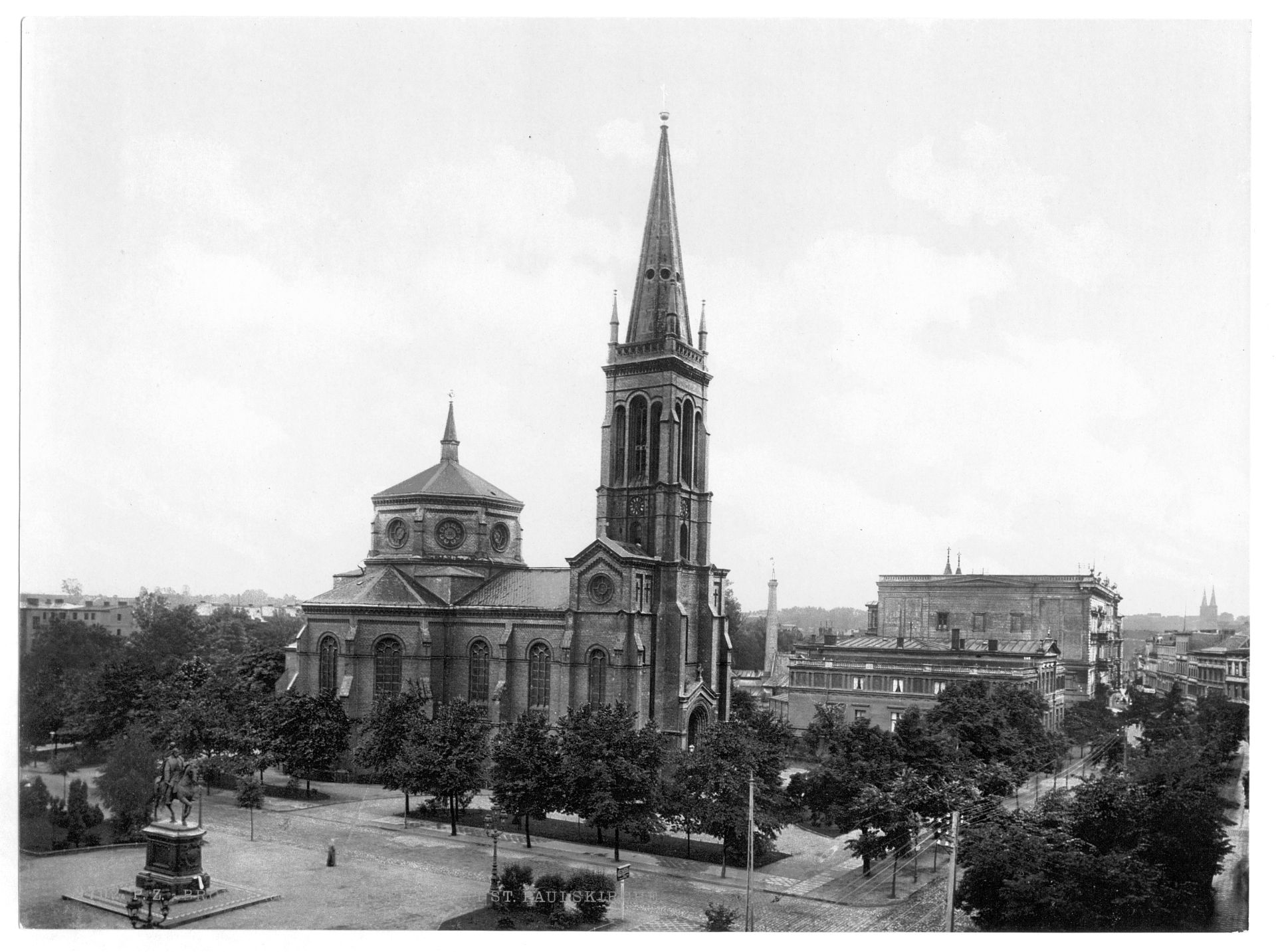
![View from the fifth lock, Bromberg, Germany [i.e., Bydgoszcz, Poland]](https://monovisions.com/wp-content/uploads/2023/06/bromberg-bydgoszcz-germany-1890s-vintage-historic-bw-photos-005.jpg)
